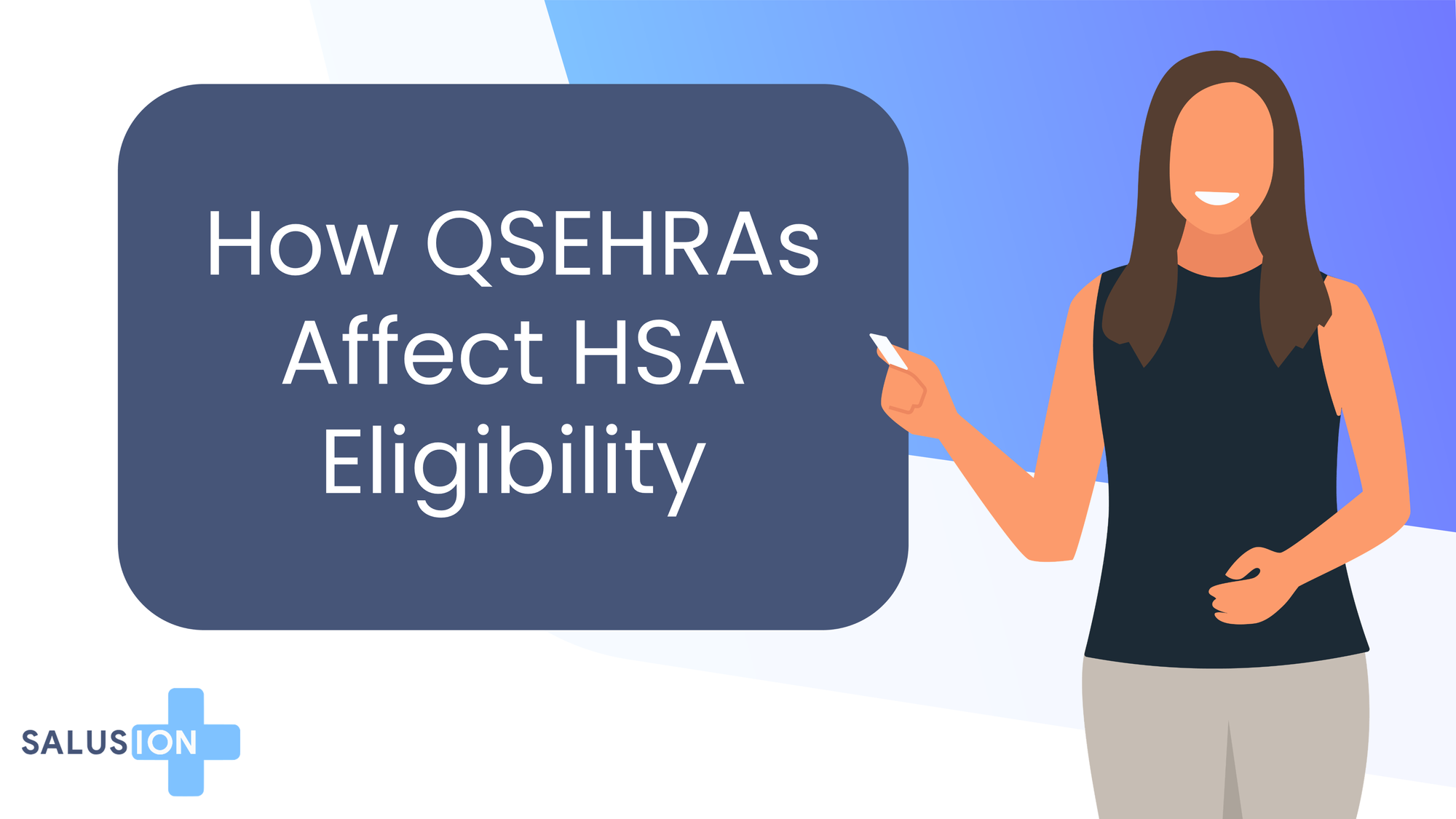If a QSEHRA reimburses any medical expenses beyond premiums (and the three IRC § 223(c) “disregarded” categories), it will prevent employees from contributing to an HSA.
Under IRC § 223(c)(1)(A), an individual may contribute to an HSA only if they are
- enrolled in a High-Deductible Health Plan (HDHP) and
- are not “covered under any health plan … which is not a high-deductible health plan, and which provides coverage for any benefit which is covered under the high-deductible health plan.”
Reimbursing General Medical Expenses Disqualifies HSA Contributions
Notice 2017-67 (Q&A-75) confirms that any QSEHRA payment for medical costs below the HDHP deductible (including cost-sharing amounts) makes the employee ineligible to contribute to an HSA. In other words, if a QSEHRA pays for things like prescription drugs, office-visit copays, or over-the-counter medications before the HDHP deductible is met, it becomes disqualifying “other coverage” under § 223(c)(1)(A)(ii).
Reimbursing Only Premiums Permits HSA Contributions
Notice 2017-67 (Q&A-76) holds that if a QSEHRA reimburses only insurance premiums (for any plan), it does not count as “coverage for a benefit covered under the HDHP.” Because premium assistance never pays a medical benefit below the deductible, it does not violate § 223(c)(1)(A). As long as the employee remains enrolled in an HDHP, HSA contributions stay intact.
Reimbursing Vision, Dental, and Preventive Care Also Permits HSA Contributions
IRC § 223(c)(1)(B) explicitly excludes vision care, dental care, and preventive services from “other coverage.” A QSEHRA may reimburse these specific § 213(d) expenses—alongside premiums—without disqualifying HSA eligibility. Notice 2017-67 (Q&A-77) confirms that a QSEHRA paying only premiums plus these “disregarded” categories does not trigger IRC § 223 disqualification.
Practical Takeaways
- Keep the QSEHRA limited to insurance premiums if you want employees to remain HSA-eligible.
- If you expand beyond premiums, restrict reimbursements to vision, dental, and preventive care. Any other general medical expense below the HDHP deductible duplicates an HDHP benefit and voids HSA contributions.
By following these guidelines—reimbursing only premiums and, if desired, vision/dental/preventive care—employers can offer a QSEHRA without jeopardizing employees’ ability to contribute to their HSAs.

subtopic





